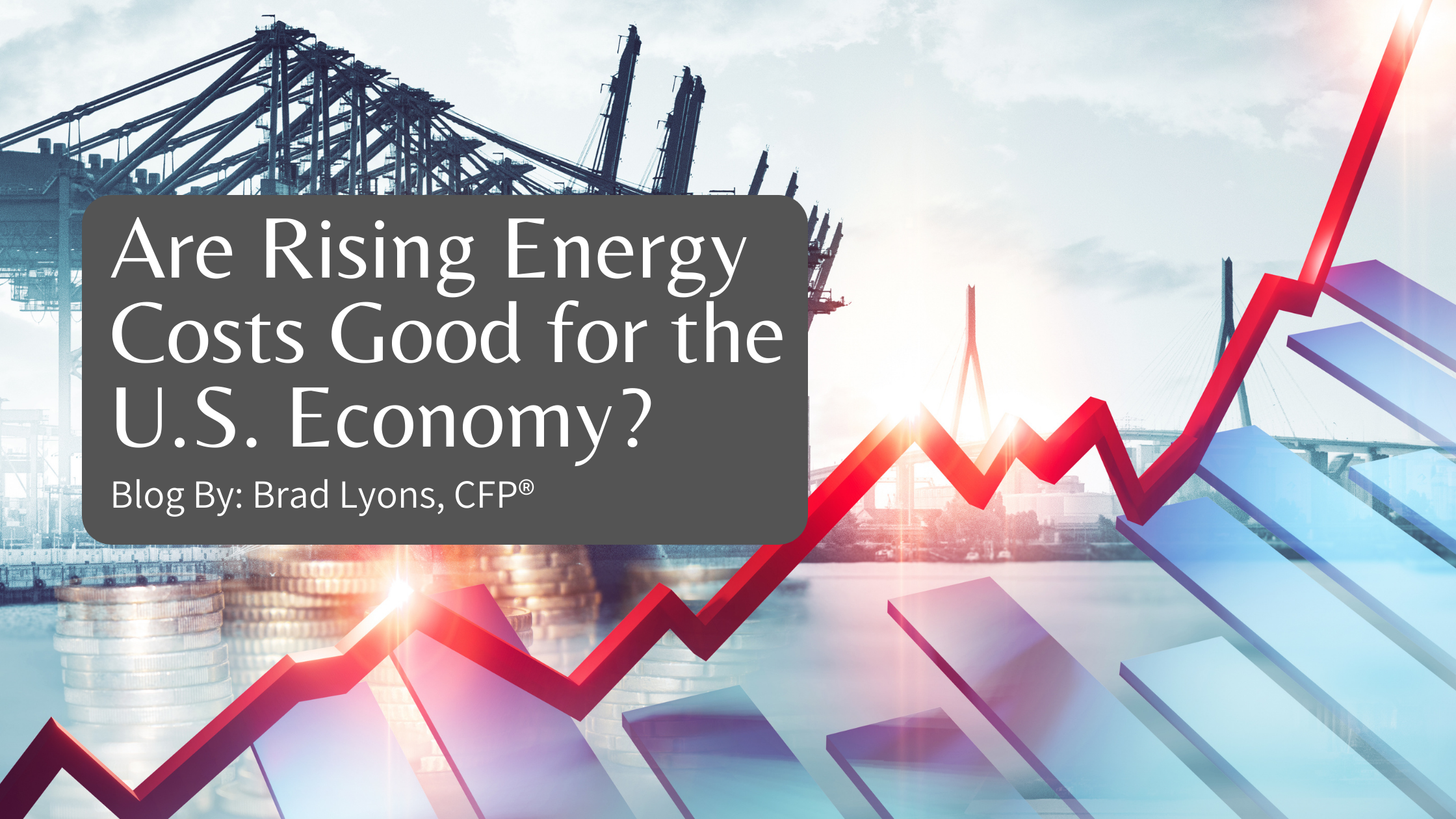
Are Rising Energy Costs Good for the U.S. Economy?
Oil prices have risen 60% in the past 12 months affecting the pocketbooks of consumers and the bottom line of businesses, but this may not spell the imminent disaster it once did. Historically, rising energy costs hurt the US economy by reducing GDP. The rise in oil prices create a domino effect where rising energy costs cause a rise in transportation costs, heating costs and manufacturing costs. When all of these prices rise together, they cut into the discretionary income for individuals and reduce profits for businesses because production costs increase. But, this current rise is operating differently than in the past. Rising oil prices have actually had a muted impact on US economic growth due to the increase in US oil production capabilities.
In all fairness, higher gas prices and home heating costs this winter will hurt lower income earners more than higher income earners because they have smaller discretionary funds. Rising costs can also contribute to higher inflation. This is particularly problematic now that we’re in a time when inflation is already on the rise due to a variety of other factors. Despite these real concerns, though, the US currently produces so much more energy than it has in the past that this spike in prices will affect the economy in a very different way. Soaring energy prices may no longer be bad news for the US economy as a whole. In fact, GDP and oil prices now appear to have a small positive correlation to one another.
US oil production is currently at 11.5 million barrels per day, which is slightly off its high of 13 million barrels per day prior to the pandemic. This is one of the reasons for the rise in prices. Remember your supply and demand curve from economics class? Recently, however, production has started going up. The current oil rig count is 428, up from 421, as producers increase their production to meet the growing demands of the re-opening economy. Producers are increasing their capital spending to increase their production and that boosts economic growth, which offsets some of the negative effects of a price increase. In fact, where a 10% increase in oil prices in the past meant a subtraction of 25 bps of GDP, but now it’s a wash.
Americans currently spend only 3% of discretionary income on energy – I know it feels like it’s a lot more. However, in the 70s, it was about 8% and for most of this century, it has averaged around 5%. Obviously, the more accustomed we become to paying low energy prices, the more we’ll feel any increase in costs. A rise in energy prices can feel equivalent to a regressive tax. However, now that the US is more energy independent, we’re shipping off fewer of our energy dollars to the Middle East. Energy independence allows our energy dollars to stay in the US economy and recirculate throughout the many sectors that are part of the energy supply chain, boosting GDP. This change in our energy supply is undeniable good. Having a sizable energy supply chain of our own means we no longer need to depend on far away foreign supply chains like we have in the past. Therefore, a rise in oil prices will no longer be the economic chokehold it used to be.
Brad Lyons, CFP®
Investment Manager
Share This Story, Choose Your Platform!
Wiser Wealth Management, Inc (“Wiser Wealth”) is a registered investment adviser with the U.S. Securities and Exchange Commission (SEC). As a registered investment adviser, Wiser Wealth and its employees are subject to various rules, filings, and requirements. You can visit the SEC’s website here to obtain further information on our firm or investment adviser’s registration.
Wiser Wealth’s website provides general information regarding our business along with access to additional investment related information, various financial calculators, and external / third party links. Material presented on this website is believed to be from reliable sources and is meant for informational purposes only. Wiser Wealth does not endorse or accept responsibility for the content of any third-party website and is not affiliated with any third-party website or social media page. Wiser Wealth does not expressly or implicitly adopt or endorse any of the expressions, opinions or content posted by third party websites or on social media pages. While Wiser Wealth uses reasonable efforts to obtain information from sources it believes to be reliable, we make no representation that the information or opinions contained in our publications are accurate, reliable, or complete.
To the extent that you utilize any financial calculators or links in our website, you acknowledge and understand that the information provided to you should not be construed as personal investment advice from Wiser Wealth or any of its investment professionals. Advice provided by Wiser Wealth is given only within the context of our contractual agreement with the client. Wiser Wealth does not offer legal, accounting or tax advice. Consult your own attorney, accountant, and other professionals for these services.





